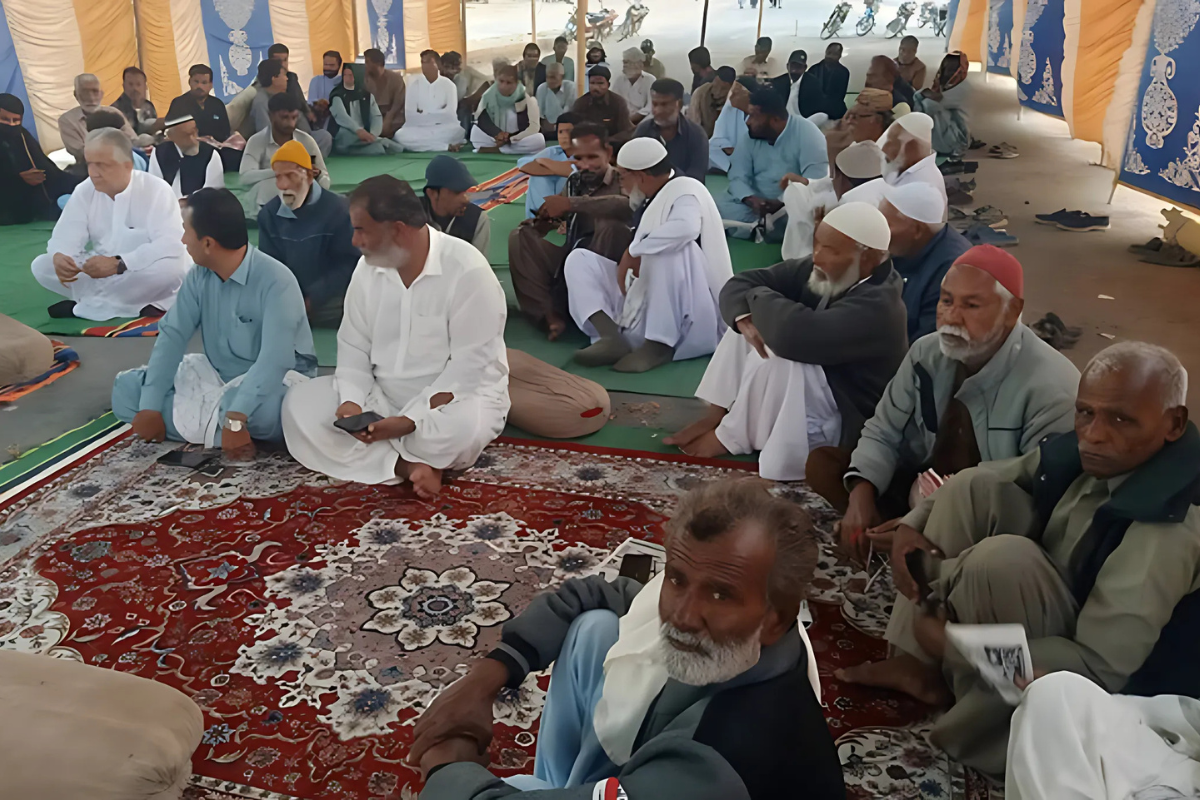Protesters in Pakistan's port city Gwadar threaten to march on Islamabad
New restrictions on informal cross-border trade with Iran spark 11-day sit-in protest
News Desk
The News Desk provides timely and factual coverage of national and international events, with an emphasis on accuracy and clarity.

Protesters attend a sit-in demonstration in Gwadar, Pakistan, December 22, 2023.
Courtesy All-Parties Alliance
Millions in region depend on Iran trade for food and fuel
Local merchants say restrictions make trade unaffordable
Officials refuse to negotiate on trade barriers
Protesters in Pakistan's strategic port city of Gwadar threatened on Tuesday to march on the capital Islamabad as their sit-in against trade restrictions and poor living conditions entered its 11th day, escalating tensions in Balochistan's coastal town.
The demonstration, led by a coalition of local political parties, has centered on a controversial token system implemented in August that severely restricts informal trade with neighboring Iran, an economic lifeline for many in this impoverished corner of southwestern Pakistan.
Houth Abdul Ghafoor, leader of the All-Parties Alliance that organized the protest, has said if the protestor's demands aren't met, they will have no choice but to take their protest to the capital. The alliance is demanding the abolition of a recently introduced token system for cross-border trade, which is unaffordable for a vast majority of the local traders.
Protesters say the system has created unemployment in a region where millions depend on informal trade with Iran for basic necessities like fuel and food. Local authorities defend the measures as necessary to formalize trade.
Beyond trade restrictions, demonstrators are rallying against illegal fishing trawlers from Karachi that they say threaten local livelihoods, lack of property rights in the nearby Surbandar area, and chronic power outages. They also seek compensation promised to 11,000 residents whose homes were damaged in a February storm.
"None of these demands are trivial for local people," said Shahzada Zulfiqar, a veteran journalist familiar with the region. He noted that protesters face "humiliating" seven-hour waits at checkpoints when transporting Iranian fuel, despite carrying Pakistani identification.
Gwadar woes
The protests mark the latest challenge for authorities in Gwadar. Despite billions in Chinese investment, residents have long complained of marginalization and lack of basic amenities like clean drinking water and electricity.
Previous demonstrations have highlighted similar grievances, including a major protest movement led by local leader Maulana Hidayatur Rehman. The region has also witnessed a decades-long separatist insurgency, with militants accusing the government of exploiting Balochistan's resources while neglecting its people.
Government officials have reportedly refused to negotiate on abolishing the token system, setting the stage for a potential escalation if protesters follow through on their threat to march on Islamabad.










Comments
See what people are discussing